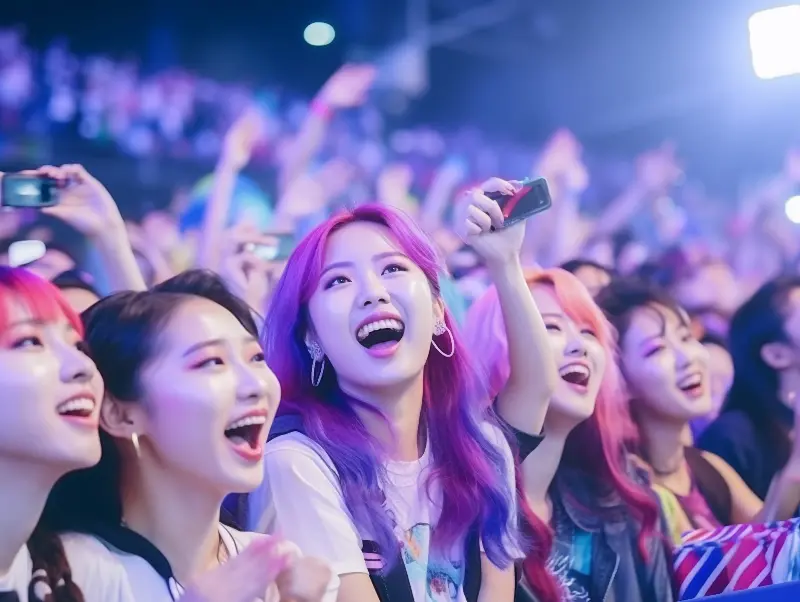The world of entertainment is evolving at breakneck speed, and driving this transformation is an unlikely hero: passionate fan communities. Once considered merely spectators, today’s fandoms are rewriting the rules of movie-making, shaping musical trends, and dictating the trajectory of global pop culture itself. From K-pop stans who crash the internet to Marvel die-hards influencing cinematic universes, the reach and power of fan bases have never been greater or more creative. It’s no exaggeration to say that the future of entertainment may well depend on these loyal, inventive, and increasingly vocal communities.

The Power Shift: From Passive Audience To Cultural Architects
For decades, the relationship between fans and entertainment creators was largely unidirectional. Movie studios, record labels, and publishers would release their content, and audiences received it—sometimes with excitement, sometimes with critique, but rarely with direct influence. Today, technology has completely upended this dynamic.
Social media platforms like Twitter, TikTok, Weibo, and Instagram provide fans with unprecedented access to creators, studios, and even other fans across the globe. Campaigns driven by hashtags can save television series from cancellation, as seen with the “#SaveLucifer” movement, or force the re-editing of entire films, famously with the “Snyder Cut” of Justice League. This is not just advocacy; it’s active participation in creative decisions. In effect, fans have become essential partners in shaping the products they consume.
Fan Funding And The Age Of Crowds
A particularly fascinating development is the rise of fan-driven funding. Crowdfunding platforms such as Kickstarter and Indiegogo have enabled fans to directly back projects that major studios might overlook. This was spectacularly demonstrated with the “Veronica Mars” movie, which raised millions within hours, all thanks to a dedicated fanbase hungry for closure.
Music artists have experienced similar support. British singer Amanda Palmer famously raised over a million dollars from fans to fund an album, tour, and art book, circumventing the traditional label system altogether. This wave of fan-driven financing is rebalancing power: creators are less beholden to corporate interests and can focus more on what their most fervent supporters actually want.

Community-Built Worlds: When Fandoms Get Creative
Fans no longer simply consume content — they add to it. Fan fiction, fan art, memes, and even short films have become central components of fandom experience. Websites like Archive of Our Own and Wattpad are filled with millions of stories that expand upon the worlds of Harry Potter, Marvel, Star Wars, and countless other franchises.
What’s truly revolutionary is how this grassroots creativity occasionally feeds back into official content. The producers of “Supernatural” actively acknowledged and incorporated fan theories and fan-invented phrases into the series itself. Likewise, Korean pop music superstars BTS often credit their ARMY fandom for inspiring viral dance choreography and campaign concepts.
Gaming provides another potent example. The game “Minecraft” thrives on an active modding community whose fan-made creations have kept the platform fresh and culturally relevant for over a decade. Fan-driven economies of creativity are mutually beneficial, with franchises gaining longevity and fans gaining agency and recognition.
Globalisation And The Blurring Of Borders
Today’s fandoms are uniquely global. A song released in Seoul can trend in Mexico City within hours, thanks in large part to fan-led translation projects, subtitling teams, and international fan clubs. This phenomenon has elevated formerly niche phenomena—such as anime, K-pop, and Bollywood musicals—to worldwide sensations.
Fans serve as ambassadors for cultural exchange, introducing new ideas and aesthetics to distant audiences. In 2022, for example, the Netflix hit “Squid Game” rapidly became an international phenomenon, not only due to its unique story but also because global fan subcultures propelled its visibility with memes, analyses, and language lessons. The rapid rise of Afrobeats, with artists like Burna Boy and WizKid, has similarly hinged on globally connected fan initiatives that spread music far beyond its origins.

Influence Beyond Entertainment: Social Change And Activism
Perhaps the most remarkable aspect of modern fandoms is how they have leveraged their collective power for causes that extend beyond entertainment. Fandom culture is proving a fertile ground for activism, charity drives, and social movements.
The ARMY—fans of BTS—have raised millions for global charities and sponsored countless social campaigns. In 2020, K-pop fans redirected online hate campaigns, flooding negative hashtags with fancams and messages of support for social justice. Fans of science fiction series like “Star Trek” have a long tradition of linking their passion for future worlds to advocacy for inclusion, gender equality, and environmental action.
More than ever, membership in a fandom isn’t just about liking something—it’s about belonging to a community with shared values and ambitions, sometimes changing the world one meme or donation at a time.
The future of movies, music, and pop culture is increasingly being forged in the fires of fandom passion. By embracing their role as co-creators, funders, and cultural ambassadors, fans are not simply influencing entertainment—they’re revolutionising it. The once-clear boundary between creator and audience has blurred into vibrant collaboration, forever altering the landscape of global pop culture. If the past decade is any indication, this revolution is only just beginning.
